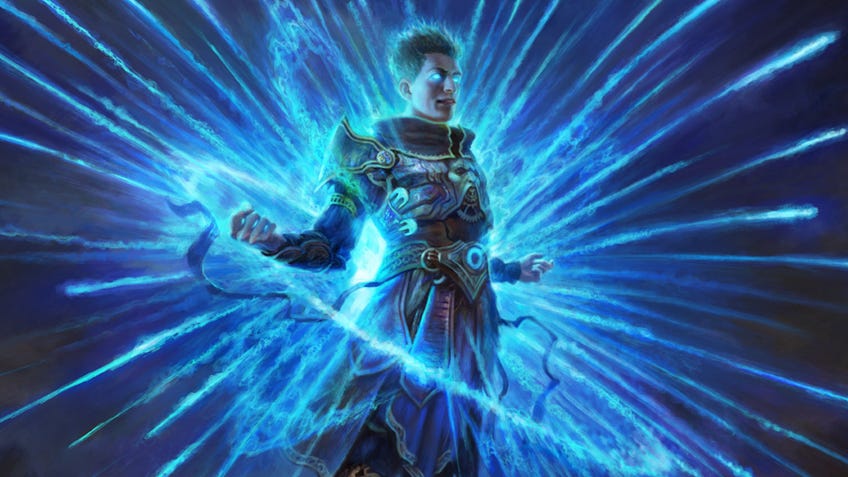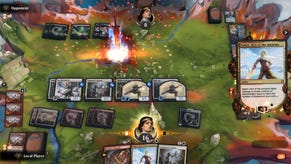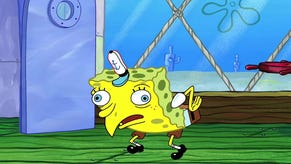Magic: The Gathering’s baffling teaser ignites rumours of Reserved List shenanigans
Players wonder if the trading card game publisher plans to sell their own proxies.
A recently teased ‘playtest’ treatment for certain Magic: The Gathering cards has revived discussion of the Reserved List, proxies and Wizards of the Coast’s seemingly bottomless desire to squeeze profit from every corner of its popular trading card game.
The source of what’s become seasonal topics of debate amongst players is a recent article from WotC Communications Director Blake Rasmussen, titled ‘A Tale of a Non-Tournament Legal Counterspell’. Rasmussen doles out a rather confusing reveal of a Counterspell card that - if I’ve parsed the language correctly - will be printed to look like the cards that the internal design teams use prior to finalising official sets.
Rasmussen likens this playtest treatment to the simplified, black-and-white promotional cards from Mystery Booster - an included image of the card looks like a blown-up digital image inked on printer paper and glued to an existing card. A large holo sticker is slapped across the rules text box, and the words ‘SL PLAYTEST’ can be seen along the bottom margin.
Rasmussen implies that Counterspell and other cards with the same treatment will not be tournament legal, even though any other version from any other printing would earn a judge’s approval. “Play it against your friends, keep it in a binder, or tape it to a mirror for your morning motivation. You do you. You just can't do you with this card in tournaments,” Rasmussen writes at the end.
As many people in MTG communities and social media have pointed out, printing and selling “non-tournament legal" versions of cards that would normally be legal using any other art treatment veers dangerously close to selling proxies through official products. Other players noted that this could be WotC’s way of circumventing the legal restrictions of the Reserved List, which restricts many older cards from being reprinted in “a functionally identical form” in order to preserve their value on secondary markets.
Wizards of the Coast tried this before with the much-maligned 30th Anniversary packs, which charged players $999 for reprints of extremely old cards that could not be used in any tournaments or officially sanctioned competitions. Effectively, the company packaged booster packs of proxies and slapped a premium price tag on it. Those so-called celebrations of MTG’s history are no longer being printed and currently sell for about $1,200.
The bottom margin text implies MTG’s plan to print these playtest treatment cards in Secret Lairs, the limited availability premium products that often feature special guest artists and unconventional treatments. ICv2’s Scott Thorne agrees, saying the move would fit Wizards of the Coast’s direct-to-consumer preference. The official Secret Lair cheekily quote-tweeted Rasmussen’s article, lending some credence to the assumption that the cards will be used to further increase the value potential - and thus, the demand - of all Secret Lair releases.
Dicebreaker has reached out to Wizards of the Coast for more information on how the company plans to package and release these cards to players. The company normally stuffs special treatments, alternate art and other set-specific goodies into Collector Booster packs, which sell at exorbitant prices and are highly susceptible to speculative inflation. The One Ring from the recent Tales of Middle-earth could only be found there, leaving draft and set boosters languishing as the trading card game increasingly turns toward collectibility over gameplay.
Commander’s ubiquity and increased focus by Wizards of the Coast has created a high demand for game pieces that aren’t used in many other formats. Players who can’t afford to buy singles or the glut of official Commander products released with every new set are normally instructed to create their own game pieces - or purchase them from third-party printers. If Wizards muscles in on the proxy game, their goal will likely be to recapture as much of that missed profit as possible.








